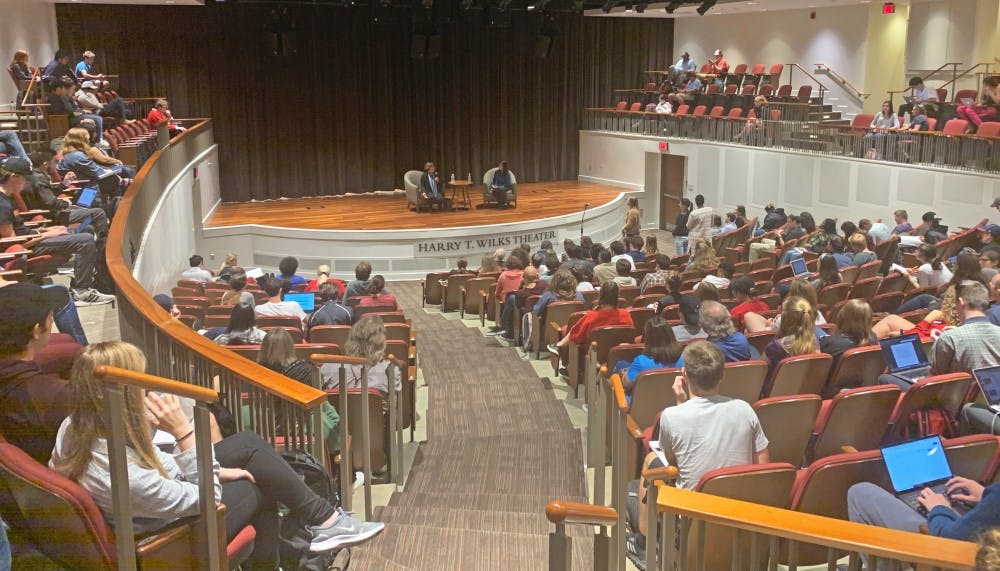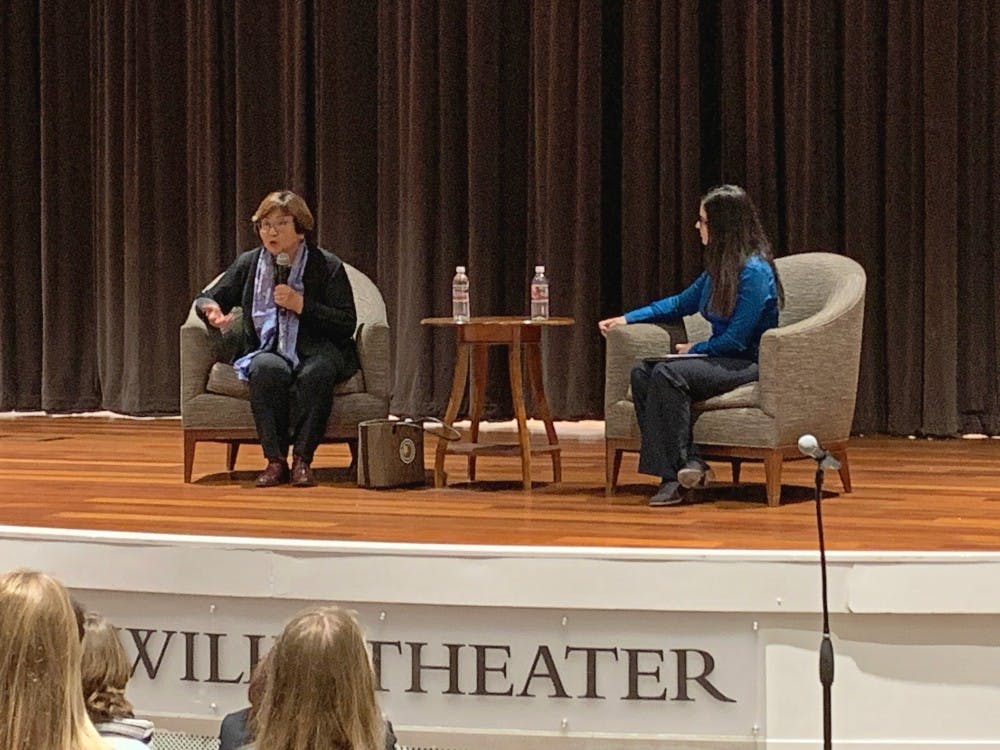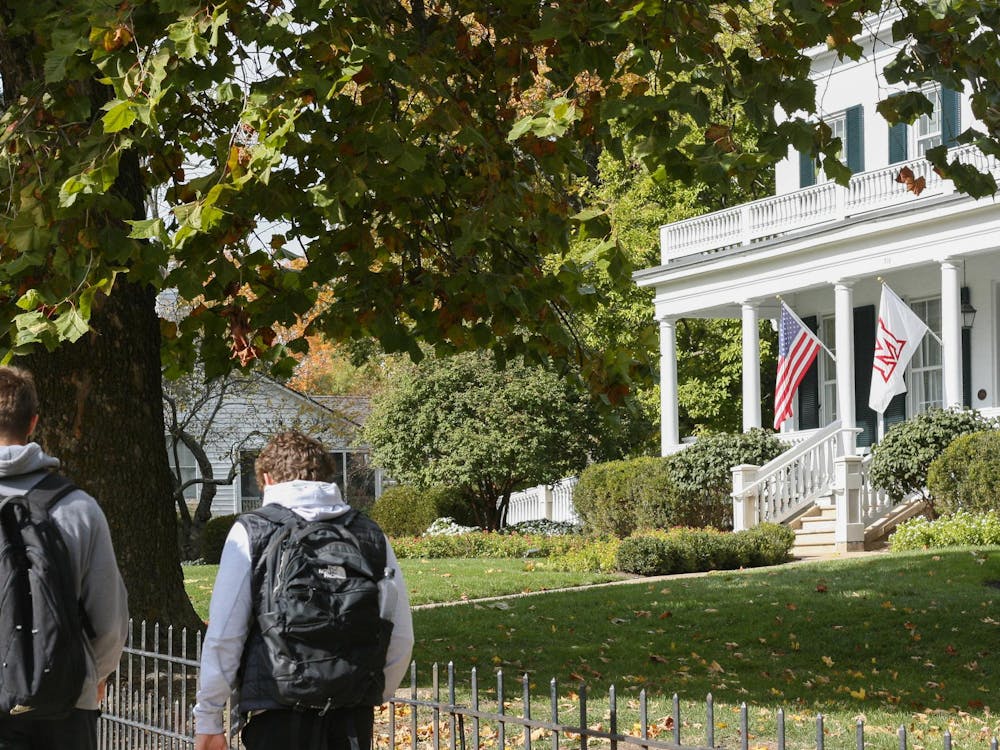As President Roza Otunbayeva took her seat on stage, a hush fell over the audience in Wilks Theater.
The former president of Kyrgyzstan, the first and, so far, only female head of state in Central Asia, sat across from Miami University associate political science professor, Hannah Chapman. Their discussion about Krgyzstan’s history, democratization and the future was a part of the Havighurst Center for Russian and Post-Soviet Studies’ annual lecture series.
“[Kyrgyzstan] is an island of democracy in Central Asia,” Chapman said, providing the audience with context before beginning the conversation last Wednesday, Oct. 9.
Otunbayeva nodded.
“Democracy is a very hard lesson to learn in 28 years,” Otunbayeva explained.
She played a major role in Kyrgyzstan’s 2005 Tulip Revolution, forcing the resignation of former president Askar Akayev, who was ousted after accusations of election fraud and corruption surfaced. Otunbayeva was later elected president after a stint as the Leader of the People’s Front opposition party during a second revolution in 2010.
Kyrgyzstan was a Soviet state until 1991, when the country declared its independence and established a mixed presidential system with a unicameral parliament. After a series of corrupt presidencies, ethnic conflicts and revolutions, Kyrgyzstan has struggled to maintain its republican structure.

But Otunbayeva is satisfied by her country’s progress on becoming more democratic.
“We’ve built a strong civil society, which I admire very much. There are those whose hands reach the most remote parts of the country,” she said. “Civil society, most of [these political organizations] headed by women, these are the most vocal, vibrant, strong part of our society.”
During her tenure as president, Otunbayeva oversaw the establishment of a new constitution and refined parliamentary system. But this system has continued to be a source of political conflict within Kyrgyzstan, she said.
“It was not an easy choice. Today we have a lot of ups and downs. We have people who insist we go back to a presidential power,” Otunbayeva said, shaking her head. “I believe [a parliamentary system] provides us transparency, openness — it provides soundness.”
Enjoy what you're reading?
Signup for our newsletter
Otunbayeva’s presidential term ended in 2011 and did not run in the subsequent elections. She retired soon after.
“[I am] very, very eager to learn about the world,” Otunbayeva said. “I learned a lot from [American] President [Jimmy] Carter, and I do believe it’s not necessarily [the case that] you have to keep your chair to make good for your country. It might be a more valuable time for the nation [for me to] do my work as founder of my foundation.”
Post-presidency, she founded the Roza Otunbayeva Initiative, a foundation dedicated to the advancement of education for Kyrgiz women and children, and the Investigative Journalism Foundation.
“You’re the busiest retired person I’ve ever met,” Chapman quipped as the audience laughed.
Otunbayeva maintained a straight face.
“I do believe that investigative journalism is the sharpest and the most efficient weapon against corruption,” she said. “Corruption is a global infection.”
The Foundation for Investigative Journalism was created in the memory of Ulanbek Egizbayev, a Kyrgyz reporter of civil corruption. The foundation presents an annual award to Kyrgyz investigative journalists in Egizbayev’s name.
“Investigative journalism is a new plant on our soil, and it’s very difficult to look after our exotic plant,” Otunbayeva said.
As far as Kyrgyzstan’s future is concerned, Otunbayeva remains optimistic. She was pleased to discover the university’s Havighurst Center and said she believed it was a reflection of Asia’s increasing global influence.
“Our relations with the United States are solid, good relations,” Otunbayeva said. “We might make it much better. I was so happy [to see] so many people studying the Russian language [at the Havighurst Center] … I see the connection, everywhere, internationally.”




